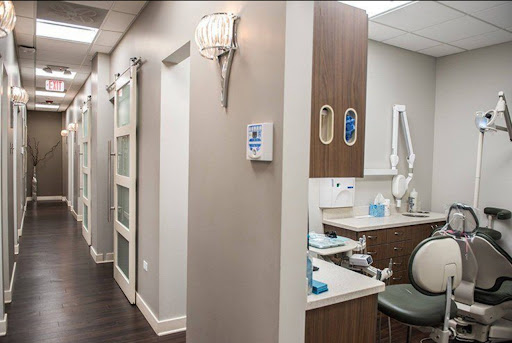
What to Expect From Your Dental Implant Procedure

If you’re missing a permanent tooth or teeth, it can significantly impact your self-esteem, your mouth’s functionality, and overall health. Dental implants are a safe and effective way to permanently replace missing teeth and restore your smile, confidence, and quality of life.
4 Min Read:
Whether due to trauma or oral hygiene issues, losing a permanent tooth can have a sizable impact on your confidence and quality of life. Missing teeth can also cause both long and short-term oral health issues, so you must get them replaced. While several solutions are available to address a missing tooth or teeth, few are as effective as dental implants. In this blog, we discuss how dental implants can help you keep your overall oral health and what to expect from your dental implant surgery.
Why Should I Get Dental Implants?
If you are missing one or more teeth and deciding between your options for replacing them, it can be an overwhelming experience. Should you get a bridge, dentures, or dental implants? Your dentist can help you figure out which option is best for you, depending on your needs. However, dental implants have several advantages over other choices, including:
- Implants can be used to replace one or more teeth
- Implants are permanent, so you won’t need to take them out to clean or get adjusted
- Implants look and feel like natural teeth
- Implants make it easy to eat and speak without fear of slipping or impairment (as can happen with dentures)
- Implants stimulate your jawbone so that you don’t lose bone mass over time
Once you’ve decided that dental implants are right for you, what can you expect from your dental implant procedure?
Dental Implant Procedure
Your dental implant procedure will begin with an individual consultation with your dentist. That will help determine if you’re a good candidate and what steps may need to be taken for a successful implant.
Tooth Extraction
If you have a broken or diseased tooth, it will need to be removed before an implant can be placed. Your dentist may also remove surrounding teeth to ensure your mouth is healthy.
Jawbone Grafting and Gum Tissue grafting
If you have had one or more missing teeth for an extended period, you may have lost bone density in your jaw. Your jawbone may be too soft or doesn’t have enough mass to support the pressure exerted when you bite and chew properly. A bone graft will help create a more substantial base for the dental implant. Gum Tissue graft will stabilize the bone long term.
Once you’ve received a bone graft, you must wait for it to heal and integrate into your jaw before the implant post can be inserted. The process of integration can take several months.
Implant Post Placement
If you don’t need a bone graft or you’ve received one and it’s healed, you’re ready for the next step. Your dentist will then implant a titanium post into your jawbone, which will be the “root” of your new tooth. After the post is placed, it will take a few months for it to fuse with your jaw in osseointegration.
Implant Abutment Placement
After the dental implant post has healed and fully integrated into your jaw, an abutment is placed on the post. Abutments are the connectors between the implant post and the tooth crown. After the abutment is placed, it will take about two weeks for your gums to heal before the next step in the procedure.
Crown Placement
The concluding step of the dental implant process is placing the artificial tooth or crown. Impressions of your teeth will be taken and sent to a lab, where a custom crown will be made. While the custom crown is created, you will typically have a temporary one. When your permanent crown is completed and delivered, your dentist will affix it to the abutment, and your dental implant procedure is complete.
Risks and Side Effects Associated With Dental Implants
Dental implants are a safe and effective way to permanently replace missing teeth in a way that allows you to enjoy your life with no restrictions. However, as with any procedure, there are potential risks and side effects, including:
- Infection (which is typically avoided with preventative antibiotics during your treatment)
- Damage to nerves, blood vessels, or surrounding teeth and tissues
- Swelling and bruising
- Pain or discomfort
- Minor bleeding
If you have concerns at any point in your dental implant journey, please contact your dentist immediately.
Learn More About Dental Implants in Schaumburg and Norridge
It doesn’t matter if you’re missing just one tooth or several; the experts at Royal Dental Care are ready to restore your smile while protecting the health of your mouth. To learn more about dental implants and discover if they’re right for you, call our office today at (773) 232-3929 (Norridge) or (847) 999-7620 (Schaumburg) and schedule a consultation with one of our skilled and experienced dentists.
























